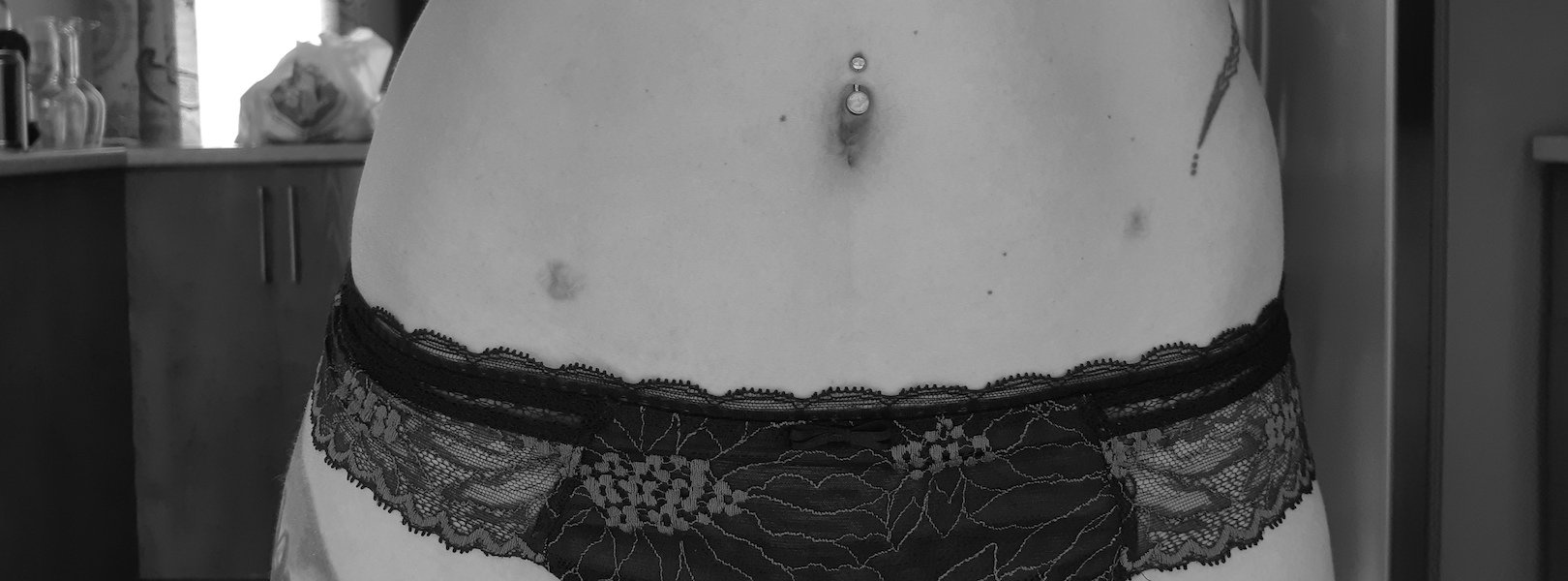Stories are written by people who don’t necessarily work or study in fields related to sexology. They convey emotions, perceptions, and subjective perspectives. Opinions voiced in the stories are those of their authors, and in no way represent Les 3 sex* position.
Translated by Florence Bois-Villeneuve.
“Why don’t you want children?”
“You still haven’t met the right man.”
“You’re young, you’ll change your mind.”
“Who will take care of you when you’re older?”
I’ve heard so many questions and comments for years now and will probably keep hearing them for 20 or 30 more.
Why would I not have the right to choose what’s good for me, even if it doesn’t match the “traditional” vision of the family?
***
My name is Malicia and I’m 32 years old. When I was a kid, I never questioned whether I wanted children. Back then, it just seemed like something that would happen naturally once I grew up, just like learning to enjoy the taste of coffee or wine. But I never wanted kids. I was never attracted to the idea of getting pregnant or taking care of another person who would be completely reliant on me. Once I entered adulthood, I started asking myself more questions, especially when discussing the future with my partners. When I was 20 years old and in one of my first “serious” relationships, I remember thinking I would have children, but later on.
Then, years went by, and doubt crept in. That’s when I asked myself: “Do I really want this?”
The answer didn’t come easily, and I went through various stages of reflection.
First, I thought I might want to become pregnant but give the child up for adoption, just so that I could experience pregnancy. My friends with children had all told me that it was an extraordinary thing, something you had to experience to understand. While I wasn’t yet 100% sure I didn’t want children, I didn’t see why I should deprive myself of the pregnancy experience just because I didn’t want to be a mother.
My partner at the time (who was 5 years older than me) wanted kids, but never pressured me. I would say, jokingly, that I wasn’t ready to give up my (alcohol-fueled) nights out with friends should I ever get pregnant. We never really talked about it seriously. Later on, I concluded that I didn’t want to have children or even get pregnant. Because it wasn’t for me. I’ve come to realize that what’s been instilled in me since I was a little girl is a social construct (for example, childfree women are bound to regret not being mothers). Yet, everyone has the right to choose for themselves.
I remember a conversation I had with my ex-husband when I told him that I did not want kids. He said, “I only want to have children with you, and no one else.” While that was very touching, it did not change my mind. I then realized that my dilemma was tremendous: Should I have children to please him? Or should I deprive him of kids for my sake? After we broke up, my choice became even clearer.
At the end of 2018, after more than 15 years on the pill and copper IUDs, I chose the ultimate contraceptive method: a bilateral salpingectomy. I expected this to be an uphill battle, but eight years after deciding not to have children, I felt more determined than ever to get what I wanted: a permanent method of contraception. So I went to a fertility clinic to find out, first and foremost, if I was sterile, in order to determine if the procedure really was necessary.
However, the clinic referred me directly to a surgeon at a public hospital, with whom I had an appointment a few weeks later. When I told her what I wanted, she, of course, suggested other methods of contraception, because I’m young, because I might change my mind, because once the procedure is done, you can’t have children by natural means, and so on. Seeing I could not be swayed, she told me I’d be put on a waiting list (priority being given to multiparous women or those at risk of ovarian cancer).
I expected a wait of several months.
The hospital called me three months later to schedule an appointment. I couldn’t turn it down, excited as I was that someone was finally going to listen to me and do what I asked. That month was filled with mixed emotions, both joy and disappointment, particularly when the hospital called me three days before the procedure to tell me it had been cancelled due to a shortage of operating room staff, and that they couldn’t tell me when it might be rescheduled. A while later, I got an appointment at the hospital to get a blood test done prior to the operation, even though I didn’t yet have a set date yet. The nurse got very judgmental when she realized why I was having the surgery. The appointment was filled with comments like:
“You’re young, that’s too bad.”
“A beautiful woman like you?”
“Are you sure you don’t want kids?”
“Why don’t you want kids?”
…
I was angry. I was shocked. I couldn’t understand why I had to justify myself over and over again. What I feared most was that this nurse would stonewall my surgery, since I still had no scheduled date for the procedure. But the next day, the hospital called to offer me a spot. I was quick to say yes. In the operating room, lying on my back with the oxygen mask over my face, I cried, thanking the staff for performing the procedure and for not making me feel like an outcast for choosing this for myself.
More than two months after the surgery, I feel so liberated, relieved, light, and, above all, free of regret.
My name is Malicia, I am 32 years old, and I will never have kids.

Comments